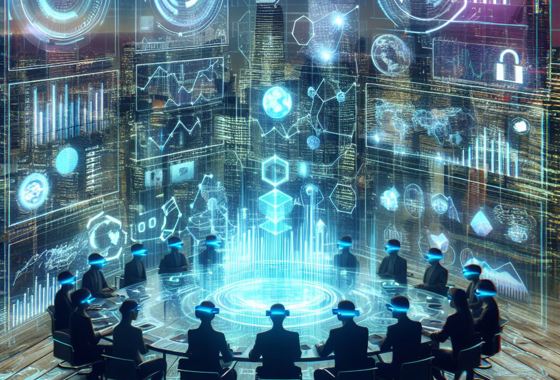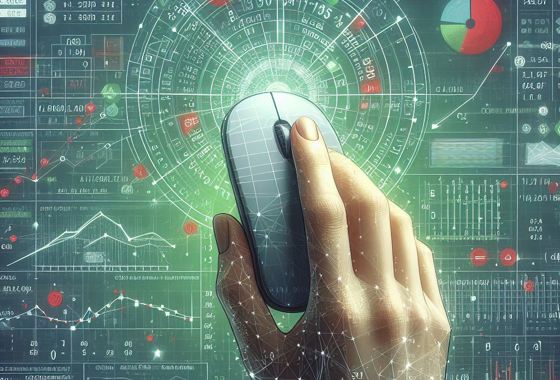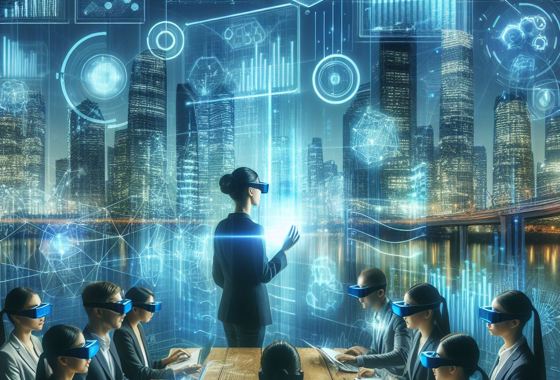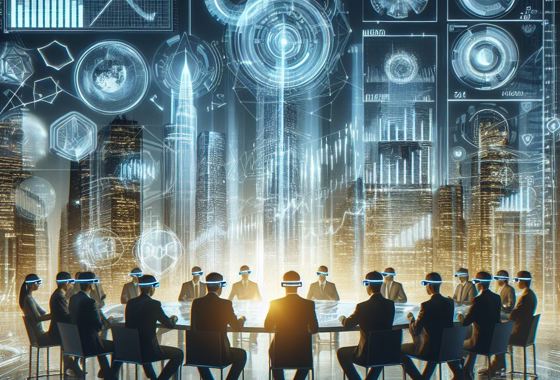Automation of the Markets through the Use of Artificial Intelligence Machine Trading
By utilizing artificial intelligence (AI) and machine learning (ML) algorithms to automate trading choices, AI machine trading is bringing about a revolution in the financial sector.
In order to identify trends and predict market movements, this data-driven strategy makes use of vast amounts of financial data, including historical prices, news, sentiment on social media, and economic indicators. Artificial intelligence computers are able to execute trades with greater speed, precision, and consistency since they do not take into account human emotions and biases.
The increasing prevalence of algorithmic traders Although the use of artificial intelligence in trading dates back to the 1960s, advancements in processing power and data accessibility have accelerated this technology's widespread adoption. These days, powerful algorithms are able to evaluate intricate market relationships, identify minor subtleties in the sentiment of the news, and even adjust their plans in real time based on the changing conditions of the market.
As a result of this, algorithmic trading firms, commonly referred to as quant funds, have come into existence. By using artificial intelligence-powered trading models, these organizations manage assets worth billions of dollars. The Advantages and Difficulties of Artificial Intelligence in Trading AI machine trading has the potential to deliver a number of benefits, including the following:
Profitability is increased because artificial intelligence algorithms have the potential to identify profitable trading opportunities that human traders might overlook, which results in higher returns on investment. With the ability to set stop-loss orders and dynamically alter holdings based on market volatility, artificial intelligence models can efficiently manage risk, resulting in a reduction in risk.
Increased liquidity:
Algorithmic trading has the potential to contribute to increased market liquidity by permitting trade execution that is both quicker and more efficient. AI machine trading does, however, provide a few obstacles, including the following:
The development and maintenance of efficient artificial intelligence trading models involves a large amount of experience in data science, programming, and financial markets. This is a complex endeavor.
Transparency:
As a result of the opaque nature of certain artificial intelligence algorithms, there are concerns about transparency and the possibility of manipulation. In the context of high-frequency trading, the application of artificial intelligence raises ethical problems due to the fact that it has the ability to take advantage of market inefficiencies and worsen market volatility.
Prospects for Artificial Intelligence and Machine Trading Machine trading using artificial intelligence is poised to play an increasingly prominent role in the financial markets, despite the hurdles that it faces. It is reasonable to anticipate the development of trading algorithms that are even more complex and potent as artificial intelligence technology continues to advance and data becomes even more pervasively accessible.
Nevertheless, it is essential to keep in mind that artificial intelligence is merely a tool, and the manner in which it is utilized is ultimately what determines how effective it is. The development and implementation of artificial intelligence machine trading algorithms in a responsible manner will be essential in order to guarantee that this technology will be beneficial to investors as well as the markets as a whole.
Never stop learning, as much as life never stops teaching! Every teaching and learning journey is unique; therefore, following that, we'll help guide your way.
Enrolling in the intelligent hub network's learning journey is as easy as registering and subscribing. Learn and share the intelligent hub network at MyKeyPod.com.
Showing 6 total results










